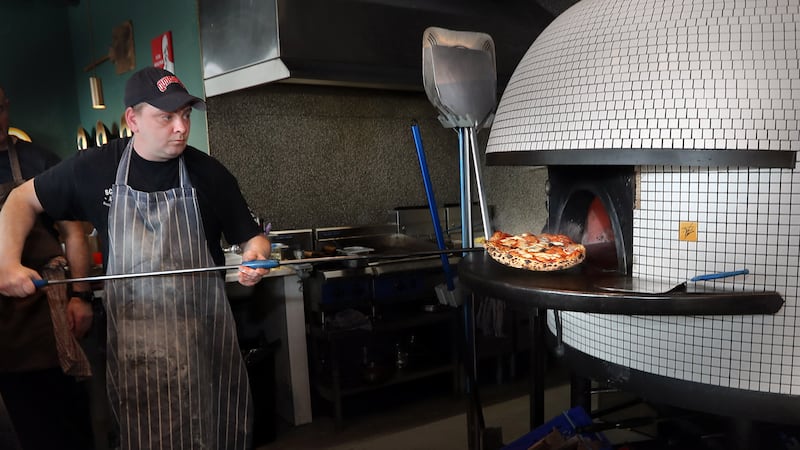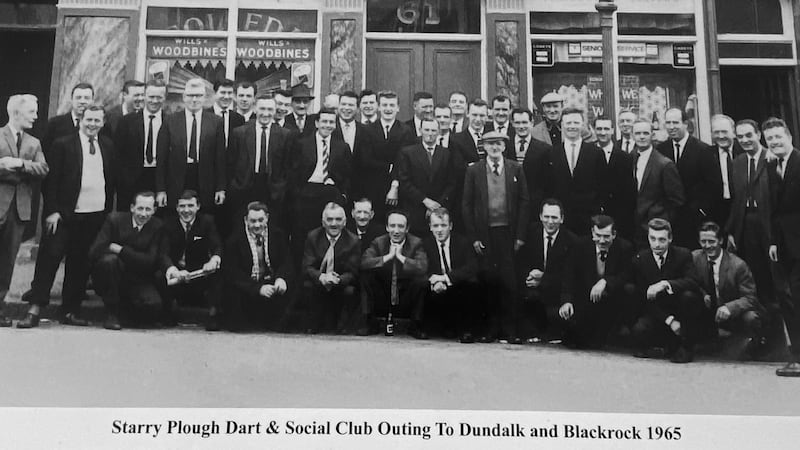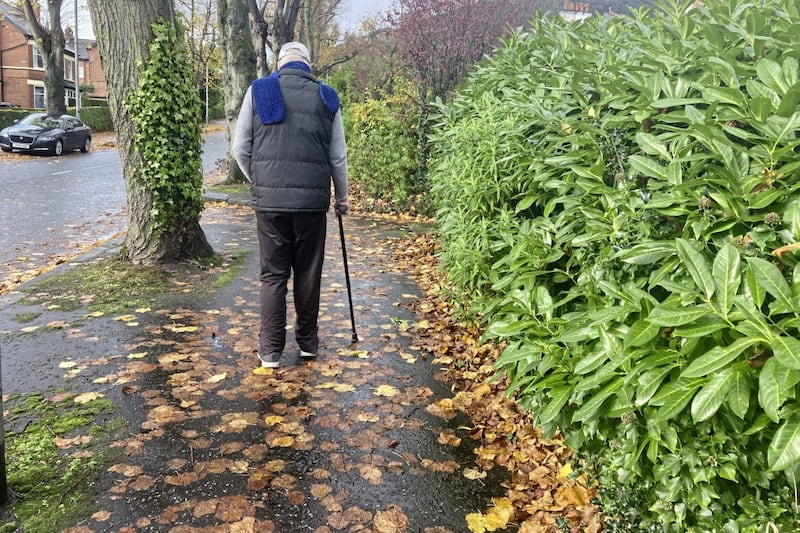HOPEFULLY the Brexit catastrophe won't affect a new product being rolled out into Europe: on a farm in Co Armagh, I recently stumbled upon a secret process – striped eggs.
No camera, no interviews but it's imprinted on my brain: rows and rows of white eggs with brown rings evenly encircling them. White eggs come from the white feathered hens with white ear lobes and getting the stripes depends on alternate feeds of pale and dark grains.
The process is not yet perfected, but should be in time for Easter. The company behind this innovation is developing the idea of using coloured feeds to eventually produce rainbow eggs.
When asked about price, my host laughed. With a big grin, he replied: "It won't be eggs-orbitant!"
:: Autistic Spectrum Disorder
I fell into company with an attractive man last week and we got into conversation. Early 30s, middle son, attentive mum and dad, no work but living in hope. The chat was great and covered lots of different topics but all rooted in the one fact of his life – he is autistic.
He was very honest but hesitant to use his real name so I'll call him Frank. Teachers at his Belfast primary school soon realised Frank was different, a very bright boy but with habits they didn't understand.
"When you're on the spectrum, and I believe most people are to some extent, you have a unique way of thinking," he told me.
"One aspect is the habit of doing things over and over in a pattern: I used to get up from my desk and walk round the room or out into the corridor, I would repeat the same sentence over and over again – but what they didn't understand was that for me this is a protection, a way of sorting out my thoughts in a logical way.
"It blocks out other sounds or distractions that cause the mind to become stressed."
And who doesn't do this in some way, by retreating into a book, going for a walk, or taking to your room and shutting the door. I experienced going into a teenager's bedroom to pass on a message to be told in no uncertain terms to get out.
I was shocked and sat on the stairs wondering what I'd done to offend when she came out of the room, sat beside me, said "I love you" and disappeared again. She was displaying her logic, I wasn't welcome but it wasn't personal.
:: Obsessions are common
Frank's special talent is his memory. He is a mine of information on just about any subject and he is precise and accurate. His fixation is cinema and his detailed knowledge is amazing. He is meticulous about everything and goes into breathtaking detail.
Basically, Autistic Spectrum Disorder is a developmental disability that affects the way people communicate, behave and interact with others. There's no single cause and symptoms can be mild or very severe, but in general a rigorous daily routine is vital to someone with autism and any deviation causes distress, confusion and often depression.
Poet and philosopher, Henry Thoreau put it this way: "If a man does not keep pace with his companions, perhaps it is because he hears a different drummer. Let him step to the music which he hears, however measured or far away."
Frank told me he excels at spelling and numbers and could read before he went to school. "I don't know how I learned, but I seemed to achieve easily when it came to studies but not when it came to people.
"At primary school it wasn't so bad because over time I built up a good set of friends and when I left I was feeling quite secure. But it all changed when it came to secondary school.
"Suddenly I wasn't one of the big boys with my special and familiar routines. I was struggling, someone the boys picked on."
And the bullying began. It was too much for him to go into detail but, he said, lying and tricks, cruel name calling and mental games made him confused, extremely vulnerable and unhappy.
To cope, as he does to this day, he retreated into himself, metaphorically and literally: he pulled the duvet over his head and hid.
The rituals became more important than ever.
"I began to examine my condition and learn that my extreme logic sometimes resulted in me either being too positive or too negative, when being open-minded was much better and that helped me develop personal skills.
"After university I got a placement in a finance firm and then a job in a small accountancy firm for a few years and all the time I was adjusting to people and they were adjusting to me, but I was laid off when the company downsized."
The one positive Frank feels is that autism is more understood now than ever before, although not always tolerated, he finds – people still don't know how to react.
It pleases him that when he meets someone from his schooldays often they will apologise for the way the class behaved but they simply didn't know about autism. Surely this was the fault of the teachers who should have looked into Frank's behaviour, found out about the spectrum that's called autism and then, with Frank's permission and acceptance, educated the pupils?
What would he say to people who meet someone with a degree of autism?
"Understand a little of what my world is like. For instance, I I love hugs but people don't understand this is my way of trying to be friendly. I know I give the wrong impression at times, especially with girls. My relationships don't last."
Obviously a sadness, although he acknowledges he has many women friends.
"Sometimes I regret I'm not like everyone else, I don't like the hustle and bustle of every day life and meeting people. I need my own space, but autism is a gift and we must all find our gift and channel it."
:: More at Autism.org.uk









